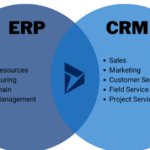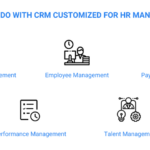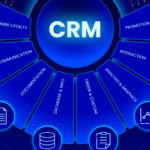If you’re like most companies it can be a daunting task to manage your customer relationships. It is important to find out how to leverage social media and other avenues to connect with existing and potential customers, as this can help you build positive, lasting relationships with your customers. Using Customer Relationship Management ( CRM) software effectively can help you leverage these avenues and build a more substantial relationship with your customers.
CRM for sales has certainly grown in popularity over the years, and it has become a staple in many businesses around the world. The CRM investment is on the upswing, praised for its ability to connect businesses with their customers. As investment in CRM software expands, businesses need to know how to use the software to their advantage, and quickly start achieving an investment return (ROI). Many companies repeatedly make the same mistakes before mastering the solution, so we’ve listed the top CRM errors companies make and how to avoid them – to reduce the time to CRM value.
Take a look at the most common mistakes businesses to make when it comes to CRM and find out how you can use it effectively:
Putting IT in charge of CRM projects
While in any software project IT certainly plays a supporting role, they should not have the ultimate say-so in your CRM investment. The initiative should be led by people who will be using the software daily. By involving your sales team and allowing them to lead the project, you ensure they are using the software regularly.
Not knowing your CRM requirements
Do not go blind in the selection process; have a list of your CRM requirements and make no compromises. You may be drawn in by the bells and whistles of a particular solution but if that solution doesn’t meet your requirements, you’re only wasting your money and time. Work together with your IT department so you select a solution that meets both your IT and reporting needs.
Focusing on unnecessary customizations
It is important to understand the difference between CRM configuration and customization. You don’t want to accommodate every customization request, but you do need to ensure that your CRM for marketing is configured correctly. Extensive customizations will restrict your ability to take advantage of the updates and create more trouble than it is worth. Unless you need that customization, table it.
Failing to prepare your employees for change
Many companies make the mistake of assuming their employees will jump on board with the new system. More often than not, companies have to be proactive when introducing a new business solution and answer any (and all) of their employee’s questions before implementing the new system. Involve your employees throughout the selection process and listen to their input. If they feel a part of the decision, they will be more likely to accept (and use) the new software.
Making price the ultimate deciding factor
While the price is certainly an important factor when it comes to deciding on CRM software, it should not be the ultimate determining factor. Consider everything: Does the solution satisfy your CRM requirements? Does it have the mobile capabilities you need? Is the solution easy to use, and can IT support it? If the answer to these questions is yes, you should consider it as an adequate solution despite the price.
Making the CRM errors above can be detrimental to your efforts at CRM. You may have the most capable solution on the market, but your efforts will fail if you don’t know how to use it or implement it. If you’re on the market for new CRM software, today, contact our CRM experts.






0 Comments